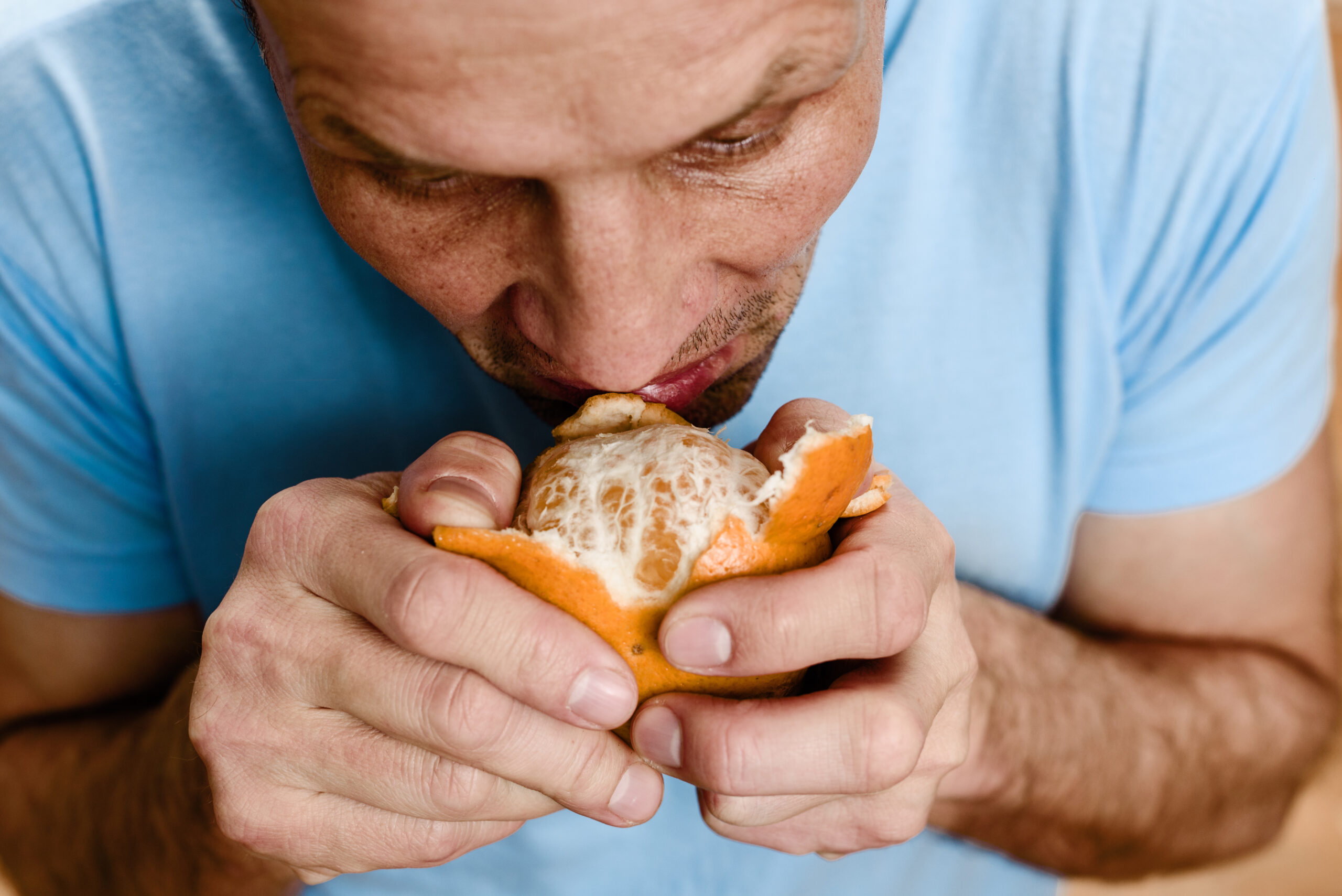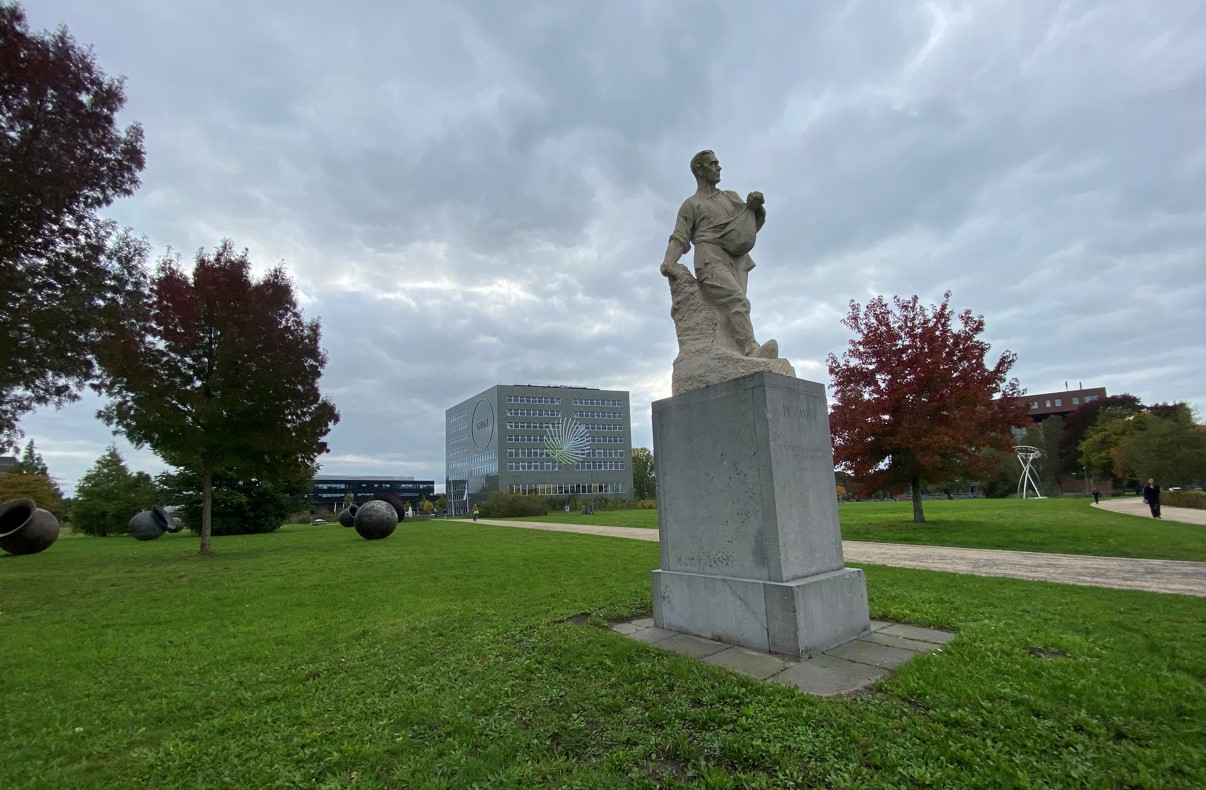WUR researchers are investigating the course of the loss and recovery of sense of smell after COVID infection. Despite home smell tests and standard kits to measure symptoms, much is still unclear about the underlying mechanism and the degree of recovery.
Around two thirds of all COVID-19 patients experience loss of smell and taste. However, it is still unknown why some people suffer this for months while for others it passes after a few weeks. Researchers from the Sensory Science and Eating Behaviour group are diving into the course of smell loss and recovery after COVID infection with various projects.
Odour pens
Many studies have shown that coronavirus patients report losing their sense of smell and taste in surveys. Since this self-reporting is not so reliable, there are also home tests which people can use to assess their sense of smell and taste with household items and foodstuffs. However, not everyone has the same items available or resources with the same intensity. That is why Professor Ciarán Forde and his previous group in Singapore (Singapore Institute of Food and Biotechnology Innovation) developed a test method that uses standard stimuli.
The test package consisted of a smell test with two odour mixtures (mango and cleaning agent) and a taste test with powders incorporating four main flavours (sweet – sugar, salt – table salt, bitter – coffee, sour – lemon). Each odour was contained in an odour pen, which the patient inhaled over. Taste was tested with a little powder on the tip of the tongue.
You do not know what you are missing…
This “Singapore Smell and Taste Test” yielded more cases of loss of smell and taste than found through self-reporting. “People sometimes only realise they smell or taste less when they take the test,” says Forde. The advantage of the test is that it is affordable, easy to use, objective, and does not impede social distancing. That makes it a good method for measurements in low and middle-income countries.
The test can be sent by post and uses QR codes and online reporting, which is useful during a pandemic with people self-isolating at home. The study has since been published in Food Quality and Preference and is one of the first to show data on the loss of smell and taste in Asia.
Sign of long COVID
Forde also wanted to study patients after they had recovered from the coronavirus, but many participants stopped taking measurements as soon as they recovered. Sanne Boesveldt and Elbrich Postma, also from the Sensory Science and Eating Behaviour group, are focusing on the long term with a new study. In the COVORTS study, funded by ZonMW, researchers follow coronavirus patients who still suffer from loss of smell and taste between one and twelve months after infection.
It is unclear why one patient may only suffer short-term loss of smell while another may go on to lose their sense of smell for much longer. It may have to do with the severity of the disease, but that too has not yet been properly researched. “It is true that people with long-term loss of smell and taste often have other long-COVID symptoms as well,” says Boesveldt. The loss of smell or taste can therefore be an important marker for long COVID.
In addition to the loss of smell and taste, symptoms of long COVID include fatigue, shortness of breath, and concentration problems. According to a review study, 10-35% of coronavirus patients experience symptoms of long COVID, and this percentage is higher in patients who are admitted to hospital.
Bad smells
In addition to loss of smell and taste, some coronavirus patients also suffer from smell disorders. For example, they suddenly smell a foul odour when they grab their trusted cup of coffee. In that case, the stimulus is processed differently, and you smell something different from what you are used to, often a foul odour. This is called parosmia. People can also suffer from phantosmia: odour hallucinations; they smell odours that are not there. According to Boesveldt, it is not yet clear whether parosmia and phantosmia are signs of recovery of the sense of smell after COVID infection.
You can also train your sense of smell. “You can do this yourself at home with familiar and strong smells, such as cleaning products,” says Postma. There is also a standard kit with fragrances of four essential oils that you can order online.
In addition to smell training, UMC Utrecht has started a trial in the COVORTS project to restore smell with medicines, the COCOS trial. They are looking for 150 participants for this. Boesveldt and Postma are also still looking for people with long-term loss of smell due to the coronavirus for their research. You can register here.

 Photo Shutterstock
Photo Shutterstock 

